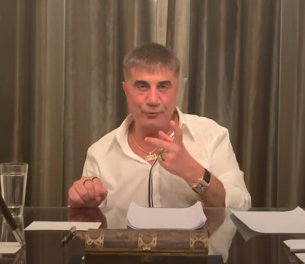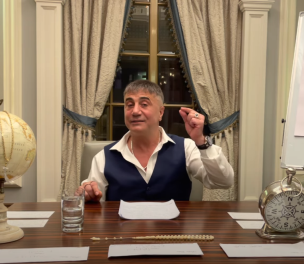Click to read the article in Turkish
Allegations made by Sedat Peker about mafia-state relations in Turkey in YouTube videos have become the most debated topic in the country.
The seven videos he has released since May 2 have got nearly 50 million views in total, with the latest video released on Sunday (May 23) getting over 10 million hits alone.
Releasing two videos a week, Peker makes accusations and confessions about many subjects including international drug trafficking, political assassinations in the 1990s, attacks on newspapers and so on. Interior Minister Süleyman Soylu and former Interior Minister Mehmet Ağar are among his main targets.
Previously convicted of leading a criminal organization, Peker has been living abroad since late 2019.
However, despite becoming a hot topic on social media and in the independent media, major news outlets' coverage of the issue has been mostly restricted to the responses of people targeted by Peker.
Nearly 40 percent of the public are either unaware or indifferent about his videos, shows a new survey by the İstanbul Economics Research (İEA).
The survey was conducted between May 19 and 21 with 1,509 respondents in 12 provinces.
"Because the claims made by Sedat Peker about various events that occurred in the past include people who are active in the office, these videos attract a great deal of attention from a part of the public," said the İEA.
"The deep state"
When asked about Peker's videos, 38 percent of the respondents said they didn't watch the videos, they were not interested in them or they had no idea about them.
Twelve percent of the respondents said they watched the videos but didn't find his claims convincing.
Twenty-four percent said they find the videos important and thought the claims were right, 15 percent said they thought the videos were important but it wasn't possible to know whether Peker's claims were right and 11.2 percent said they didn't watch the videos but know about them through people around them and the media.
The respondents were also asked whether they thought there was a "deep state." Fifty-seven percent said "yes," 23 percent said "no" and 20 percent said, "I don't know."
When asked about whether there should be a deep state, 55 percent said "no," 29 percent said "yes," 16 percent said, "I don't know."
Cross-analyzing the responses, the pollster found that those who believe in the existence of the deep state and those who think it should not exist were more likely to find Peker's claims important and accurate. (EMK/VK)









